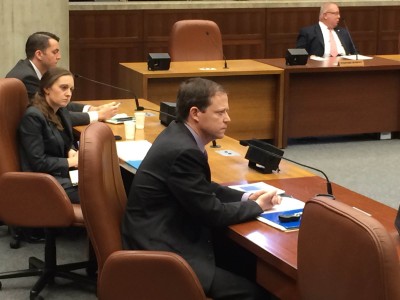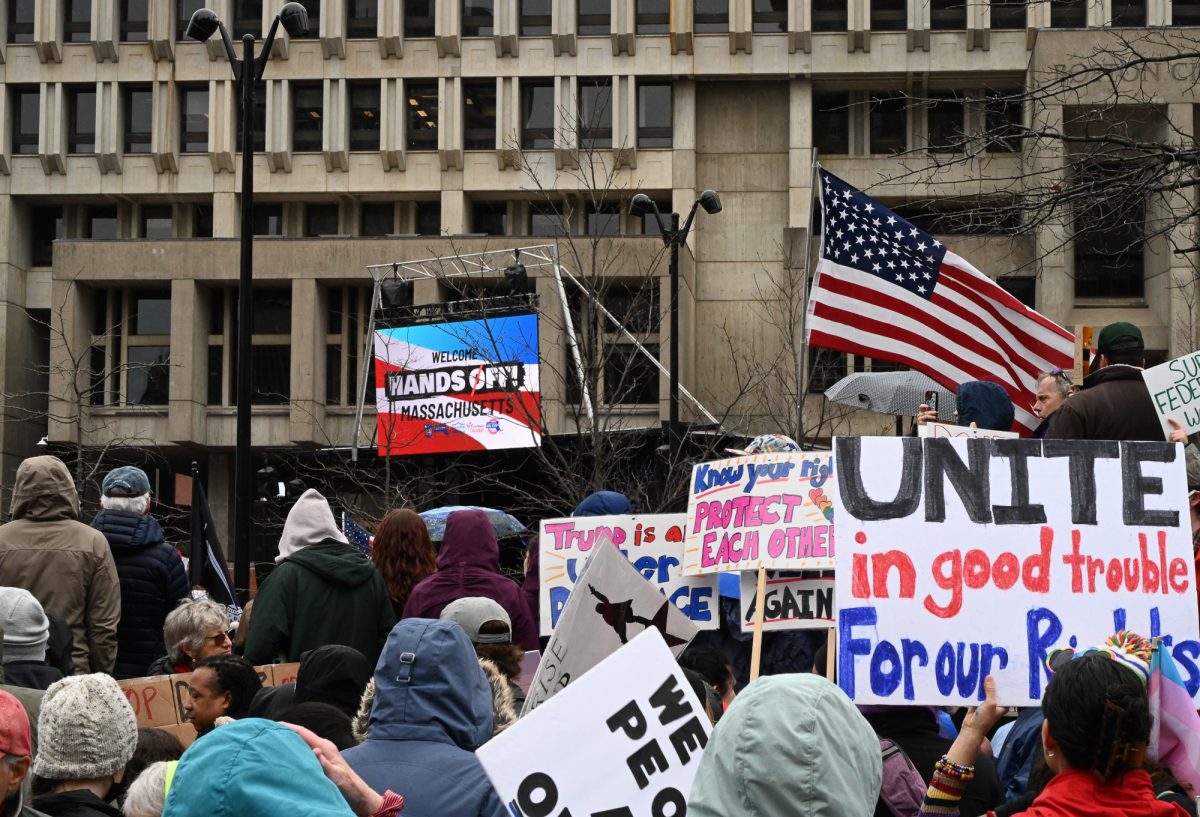
Further exploring the possibility of hosting the 2024 Summer Olympics, the Boston City Council held a meeting Friday morning to review details of a new proposal from the organizing group Boston 2024 regarding the city’s Olympic bid.
Approximately 25 people attended the public hearing, which covered issues like financing and management.
Boston 2024 CEO Richard Davey said the proposal, dubbed Bid 2.0, is an updated version of the original given to the Olympic Committee for review. The proposal, which was expected in time for Friday’s public hearing, will be released this coming week, Davey said.
Boston City Councilor Tito Jackson expressed his concern that Boston 2024 will release its second proposal before the full, unredacted version of the first one, which was submitted to the Council with chapters 5 and 6 omitted due to a nondisclosure agreement.
“This is part of the issue around transparency,” Jackson said. “We’re about to have a conversation about something new and none of us have actually seen what has been submitted. I don’t think we can have an intelligible conversation about this until we know what we’re on the hook for as hosts.”
Davey could not guarantee that the Council or the public will ever see the original proposal in full as it was given to the Olympic Committee.
Of the nine billion dollars that Jackson estimated the games would cost, Davey discussed the appropriation of $176 million for a 16,000-seat temporary stadium near the Boston food market area.
“We’re focusing on legacy and what that means for our communities,” Davey said. “Can we leave a legacy behind? Can we leave behind job creation and affordable housing?”
However, Davey made clear that land development is not the main purpose of Boston 2024.
“We’re not in the business of land development at Boston 2024,” he said. “It’s really going to have to be up to the city to move the process forward.”
Davey also discussed plans for venues both inside and outside of city limits, making clear that the Boston games would not be walkable as once proposed.
Though the majority of sporting complexes would be either preexisting, through partnerships with local universities such as Boston University, Harvard University, Northeastern University and the Massachusetts Institute of Technology or erected within city limits, Davey said the organization is taking a statewide approach and is planning to hold some sporting events in surrounding Massachusetts towns.
Despite the games’ expected sprawl, Boston will remain the sole signatory host city, meaning Boston will incur any and all financial obligations, Davey said. Boston 2024 is looking into various ways to protect the city from any huge financial burdens, he said.
Several attendees said they do not support the prospect of hosting the Olympics in Boston and the impact it will have on the city.
Cris Hoeh, 51, of Jamaica Plain, said the Olympic bid would do little to serve the Boston community.
“The Olympics have always been used to serve the powerful, not the people in need,” he said.
Cassie Hurd, 30, of Allston, is part of Boston Homeless Solidarity Committee and No Boston 2024. Hurd said that two of the proposed venues are near services for homeless people and expressed concern that their construction would displace these Boston citizens.
Hurd also said that Boston Mayor Martin Walsh has not been forthcoming with information surrounding the games and their financing and that he has relied too heavily on the private firm Boston 2024.
“The mayor has actively hid info from the community of Boston,” she said. “Walsh has not even been able to find people in his team to answer questions, so he’s deferred to Boston 2024. They’re having a relationship and a partnership that is completely unconscionable, and hiding information from the citizens.”






















































































































theszak • Jun 27, 2015 at 2:40 pm
The Secretary of the Commonwealth of Massachusetts Public Records Division and the Massachusetts Attorney General Open Meeting Division obtain the Documents that have been out of reach. File with both Divisions!